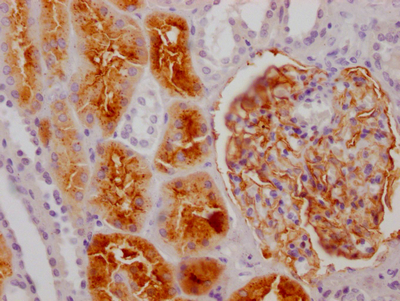The process of developing the ENPEP recombinant monoclonal antibody requires several steps. Firstly, the ENPEP monoclonal antibody is harvested and its gene is sequenced. An ENPEP monoclonal antibody gene-carrying vector is constructed and then transfected into a host cell line, followed by culture. To create the ENPEP monoclonal antibody, a synthesized peptide derived from human ENPEP is used as an immunogen. The resulting ENPEP recombinant monoclonal antibody is then purified using affinity chromatography and tested for specificity via ELISA and IHC assays. IT only detects human ENPEP protein.
The ENPEP is a membrane-bound zinc metallopeptidase that plays important roles in the regulation of blood pressure, metabolism of bioactive peptides, immune response, and extracellular matrix remodeling. ENPEP is involved in the regulation of blood pressure by controlling the renin-angiotensin-aldosterone system (RAAS). ENPEP has been shown to regulate the immune response by modulating the activity of T cells and macrophages. Dysregulation of ENPEP activity has been implicated in various diseases, including hypertension, heart failure, and cancer.




